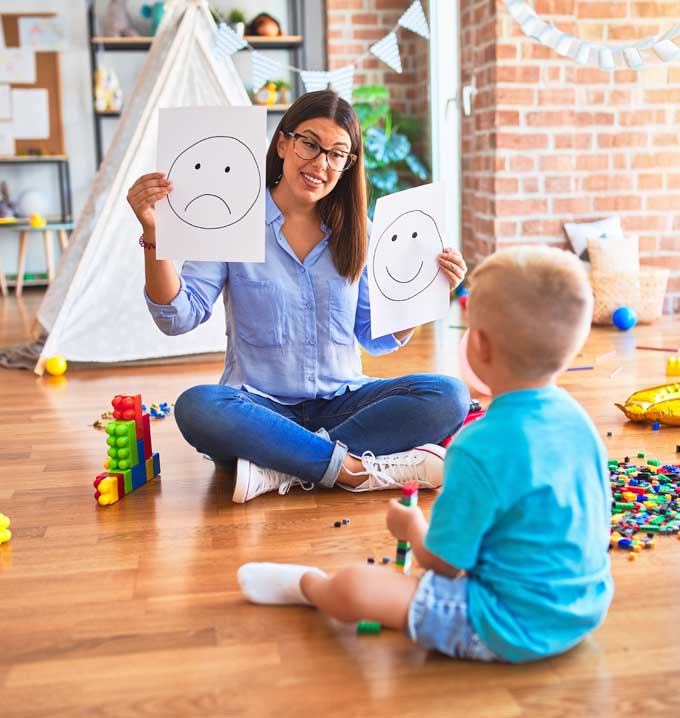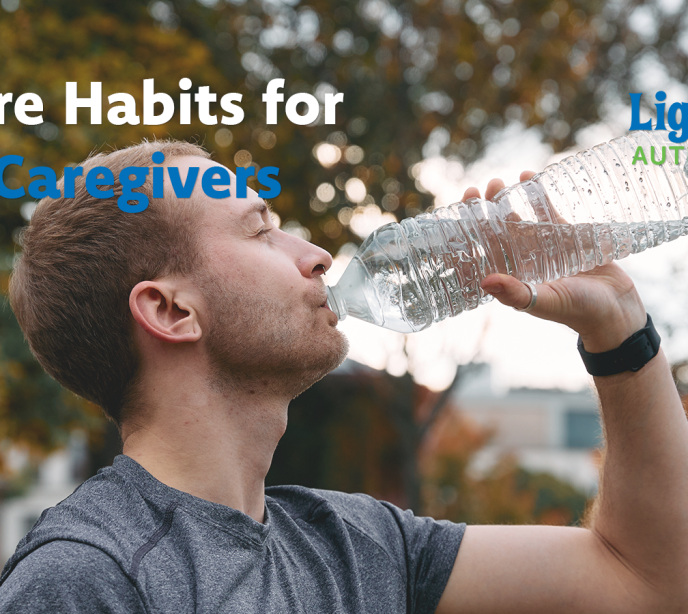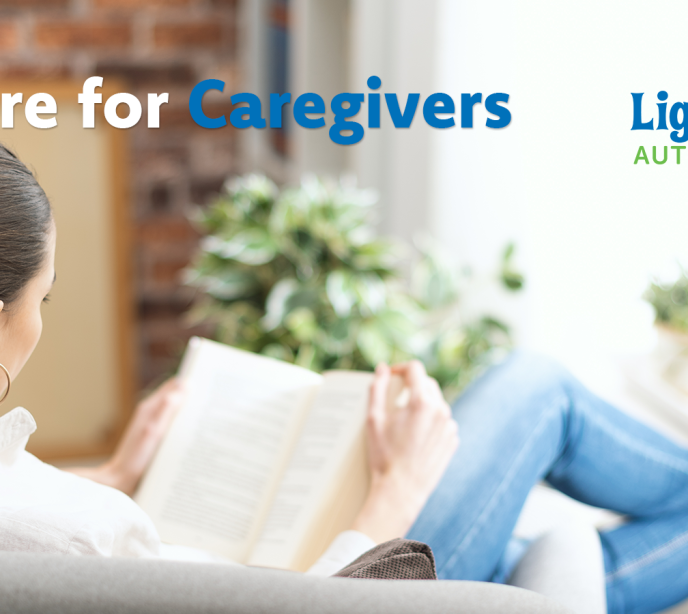What to Do After Autism Diagnosis
We take a look at some of the first steps to take after your child is diagnosed with autism.

My Child Was Just Diagnosed with Autism. What Do I Do First?
The first few moments after your child gets an autism spectrum diagnosis can be daunting and overwhelming. For some parents or caregivers, the autism diagnosis comes as a complete shock, while other parents may feel relieved as they’ve suspected it for some time.
However, one thing that almost all parents or caregivers have in common is that they aren’t sure what to do after an autism diagnosis. It’s completely normal to question what the future looks like and to be unsure about what to do in the immediate days following the diagnosis.
We understand that the moments after the diagnosis can be difficult, but we’re here to help guide you through the next steps. We’ll take a look at what the diagnosis means and what you should do following your child’s autism diagnosis.
What does an autism diagnosis mean?
So, your child has been diagnosed with autism, what does this mean? Does an autism diagnosis change anything?
Of course, confirmation that your child is autistic can be frightening. It’s normal to be nervous and a little apprehensive. However, it’s important to remember that there is nothing different about your child after the diagnosis. Your child has not changed.
What has changed is your understanding of their needs and how to meet them. One of the biggest benefits of an autism diagnosis is that this new information informs how you can support your child to ensure the best possible future for them.
So, what happens after the autism diagnosis? You now have the opportunity to learn more about autism, how it impacts your child, and what you can do to make their daily lives easier and more fulfilling. A diagnosis also means that you should have access to professional support and benefits.
Steps to take after the diagnosis
The first important steps to take immediately after the diagnosis are as follows:
Ask questions and educate yourself
The best thing that you can do immediately after your child is diagnosed with autism is to educate yourself as much as possible about the disorder. Start while you are with the medical professional (whether that’s your GP or someone else) who has given you the diagnosis. They have a wealth of knowledge when it comes to autism, and you should ask them any questions that you might have or bring up any concerns. They will be able to answer you with expert knowledge and provide you with resources to do more research.
Once you’re home, it’s important to find more trusted autism resources online that enable you to learn as much about the disorder as you can.
Educating yourself about autism and how it affects your child is an essential step in learning how to create an environment and find the right support for your child that will help them thrive.
Equip your home environment to help your child
Now that you know your child is autistic, you can ensure that your home environment is set up in such a way that it encourages them to learn new life skills while making it feel safe and secure for them.
Every child is unique, which means that each will have their own way in how autism presents — so how you prepare your home will depend on their individual capabilities. However, there are some symptoms, such as fixations, sensorial sensitivities, and verbal learning difficulties, that are present in many autistic children. Some of the best ways to make your home safe for an autistic child include:
- Ensuring that they have a dedicated quiet room.
- Putting all medications and dangerous items far out of reach.
- Labelling everyday items so they know what they are and where they belong.
- Using visual labels around the house to warn them about dangers, such as a sign with a red X saying “NO” at the door that leads to the garage.
- Creating visual boundaries for where they can and can’t go.
- Ensuring that all furniture is mounted to the floor or wall.
- Use of a visual schedule to help with daily routines.
- The use of gates or barriers at the top and bottom of stairs.
Of course, these are just a few of the considerations for your home environment, and there are many more that you can put in place to make your child’s life easier.
Find out about support for your child and your family
Now that you have sorted out your home environment, you need to support them in other areas of their life to maximize their potential. This is essential for autistic children, who will benefit from having the right support from an early age. An early diagnosis of autism allows you to find autism-specific support systems across different areas.
At school
If your child is at school already, then it’s important that you inform the school of the diagnosis. You can then get an assessment for an Individual Education Program (IEP). Speak to the school about what support they can provide. Teachers will then be aware of the situation and the care that they need to give your child going forward. Or, you may have to find a school that is better suited to your child’s needs.
Financial support
Find out what kind of financial support you qualify for after the diagnosis. You could be eligible for something like the Supplemental Security Income (SSI) benefit, which will help with extra expenses.
Family support
Remember that this diagnosis impacts the whole family. It’s easy to become absorbed in getting the right care for your child, but don’t forget about yourself, your partner, or any siblings. Ensure you spend time with other family members and that siblings understand what is happening if they are old enough. Ask them about any questions or concerns, and try to answer them as honestly as you can. Seek out family therapy for extra support if needed.
Find the right therapy program
One of the most important steps after an autism diagnosis is getting your child into therapy as soon as possible. Your GP is likely to recommend a particular medical professional or practice but don’t be afraid to do your own research, too.
The right therapy program will change your child’s life. Experienced therapists will equip you and your child with the tools and life skills to navigate the challenges of autism successfully.
LAC is here to help you take the first steps after diagnosis
We know that an autism diagnosis can be overwhelming, but with the right tools, resources, and therapy, there’s no reason that your child’s future shouldn’t be an incredibly positive one.
ABA therapy is gaining traction in the industry, and at Lighthouse Autism Center, we combine it with speech therapy in our Lighthouse Fusion ABA Therapy approach. This enhanced therapy has been designed to get the best results for your child, ensuring that they have a bright and happy future ahead of them.
Together, we can unlock your child’s potential
Related News

01/15/2026
10 Simple Self-Care Habits for Autism Caregivers
Caring for a child with autism is rewarding, but can also be demanding in ways that aren’t always visible. Between daily routines, therapy schedules, advocacy, and emotional labor, many caregivers find themselves running on empty, even as they continue to show up for their child every day. Earlier this year, we explored this reality in our blog post, The Power of Pause: Why Caregiver Self-Care […]

01/05/2026
The Power of Pause: Why Caregiver Self-Care Matters
As a new year begins, many families naturally reflect on what they hope the months ahead will bring—more peace, more balance, more support. At Lighthouse Autism Center, we’ll be taking a deeper look at the importance of self-care throughout the month of January, offering resources and encouragement to help caregivers start the year feeling supported and grounded. But […]

11/18/2025
Tips for Picky Eaters and Introducing New Foods
Autistic children are often labeled as picky eaters, but the truth is that they face a unique set of challenges that can make mealtimes extremely stressful. Discover helpful tips on introducing new foods into your child’s diet to make mealtimes more nutritional and enjoyable for everyone at the table. Autism and Food: Tips for Introducing […]


